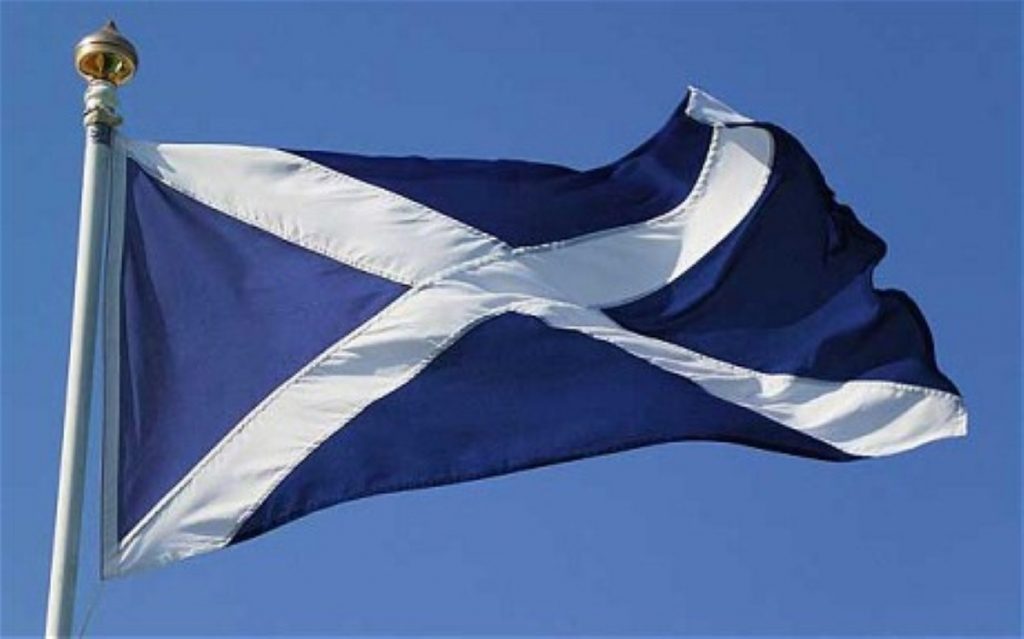Comment: Our panicked leaders need more than flagpole politics to save the union
Panic and intense anxiety don't have a great effect on decision-making, a recent academic study by American psychologists found. Westminster's leaders, facing a sudden and unexpected crisis in the Scottish independence referendum campaign, seem to have set out to prove their point.
The researchers found that the anxious are much more likely to seek and follow advice. David Cameron, who last month admitted he feels "emotional and nervous" about the referendum, yesterday invited Ed Miliband into his office in the Palace of Westminster. The two men – both of whose records will be irretrievably stained if Scotland votes to leave the UK next week – talked over their options after fresh polls confirmed the 'no' campaign's lead has evaporated. It wasn't clear who suggested that they cancel tomorrow's PMQs and rush up to Scotland instead. Whichever one it was, the other agreed wholeheartedly.
For Cameron, Miliband and Nick Clegg too, the instinct to be seen to do something – anything at all – is understandable. But it is not wise. "Our natural instincts can get us into a lot of trouble," the researchers found. That is exactly what is happening in Westminster right now. Far from helping their cause, this mad rush towards last-minute pleading risks backfiring precisely because it looks like nothing more than tokenism.
Take Cameron's decision to embrace Miliband's call for English towns to fly the Saltire. The move, according to Miliband, will "show we achieve fairness, equality and social justice better together than we do apart". Yet it's not clear it does anything of the sort. The Saltire is a cherished emblem of Scottish nationalists. No 10, confirming Cameron has agreed that Downing Street will hoist a Saltire up one of its two flagpoles this afternoon, rejected that argument completely. "The vote next week is not about whether Scotland is a nation – it already is," the prime minister's spokesperson insisted. This is confused logic: the Saltire is a symbol of separatism, not unity. It appears superficial, driven by emotion rather than clear thinking.
As one cybernat observed sarcastically on Twitter: "That's my mind made up."
The remaining days of this long, long campaign may yet prove decisive. And given the state of the polls, politicians will be all the more aware that emotions, not arguments, could prove decisive. The problem is that this is ultimately a contest of whether Scottish voters let the head or the heart lead them. In pragmatic terms, a 'no' vote is the only option. In romantic terms, 'yes' is the only way to go. As the polls narrow, emotion seems to become more important, helping the nationalist cause in the process.
Cameron, Clegg and Miliband are determined to find that emotion where Alistair Darling – the most boring man in British politics – has failed to do so. The message from their cancelled PMQs, and from the Saltire decision, is this: 'We really care about Scotland. We care a lot. We absolutely care, even though we haven't done this before. Scotland is something we care about, despite the fact we're now rushing to come up with a deal. Honestly, we care. Gosh, we care so much.'

Here is another picture of the Saltire, symbolically placed in front of another flag
It's an approach which fails on two fronts. Firstly, because it appears a little unbalanced. Just as job interview candidates are advised not to appear overwhelmingly desperate to get picked, so Westminster's leaders should appear calmer in the confidence of their case. And that's the second problem: that demonstrating indiscriminate emotion without combining it with a clear, passionate case for remaining in Britain isn't very helpful.
There is still time for the passion of these leaders to break through into Scottish voters' minds. But it hasn't yet. Here's Nick Clegg's attempt at the question in his press conference yesterday morning:
"The positive case for retaining what is a very successful family of nations is not only because we've achieved so very many progressive things together… but also because if what you believe is a United Kingdom where everyone can rely on public services which are properly supported where taxes are kept as low as possible, where people are kept in work in the largest possible numbers, where we handle and manage our debts, all of that is possible if Scotland remains part of the United Kingdom and we work together."
Not so bad, perhaps – until he continued by talking about the terrible risks of abandoning all these things in the event of independence. It is not enough.
A stronger, bolder formula is needed. Britain's leaders need to get emotional, yes – but not by flying a different flag above their offices, or by talking about the perils of a 'yes' vote either. "Refrain from making major decisions until you are in a relaxed state and can clearly reflect on the matter at hand," the American psychologists advise. Unfortunately for Cameron and co, they haven't got much time left at all.
Alex Stevenson is parliamentary editor of Politics.co.uk
The opinions in Politics.co.uk's Comment and Analysis section are those of the author and are no reflection of the views of the website or its owners.





-01.png)